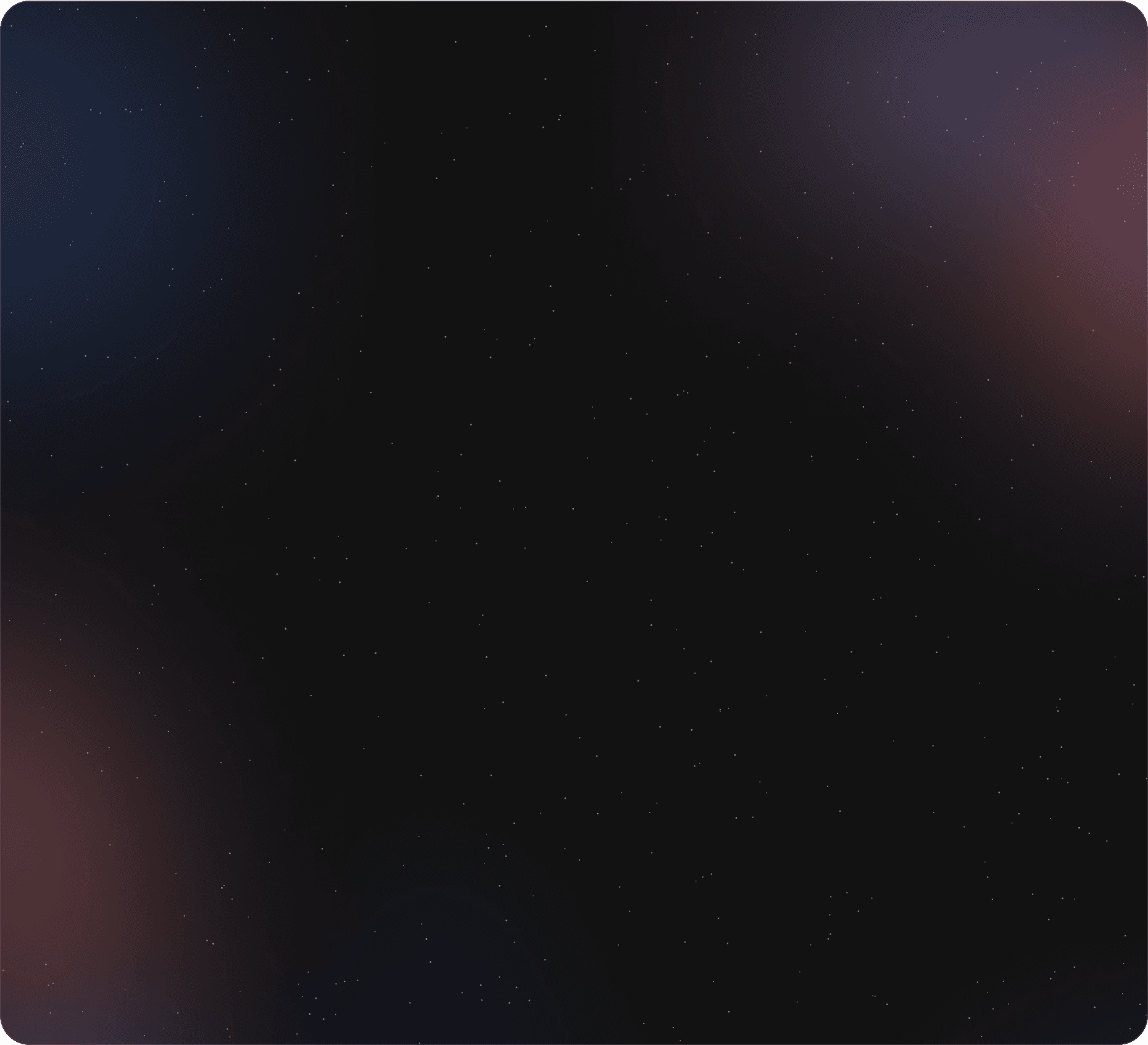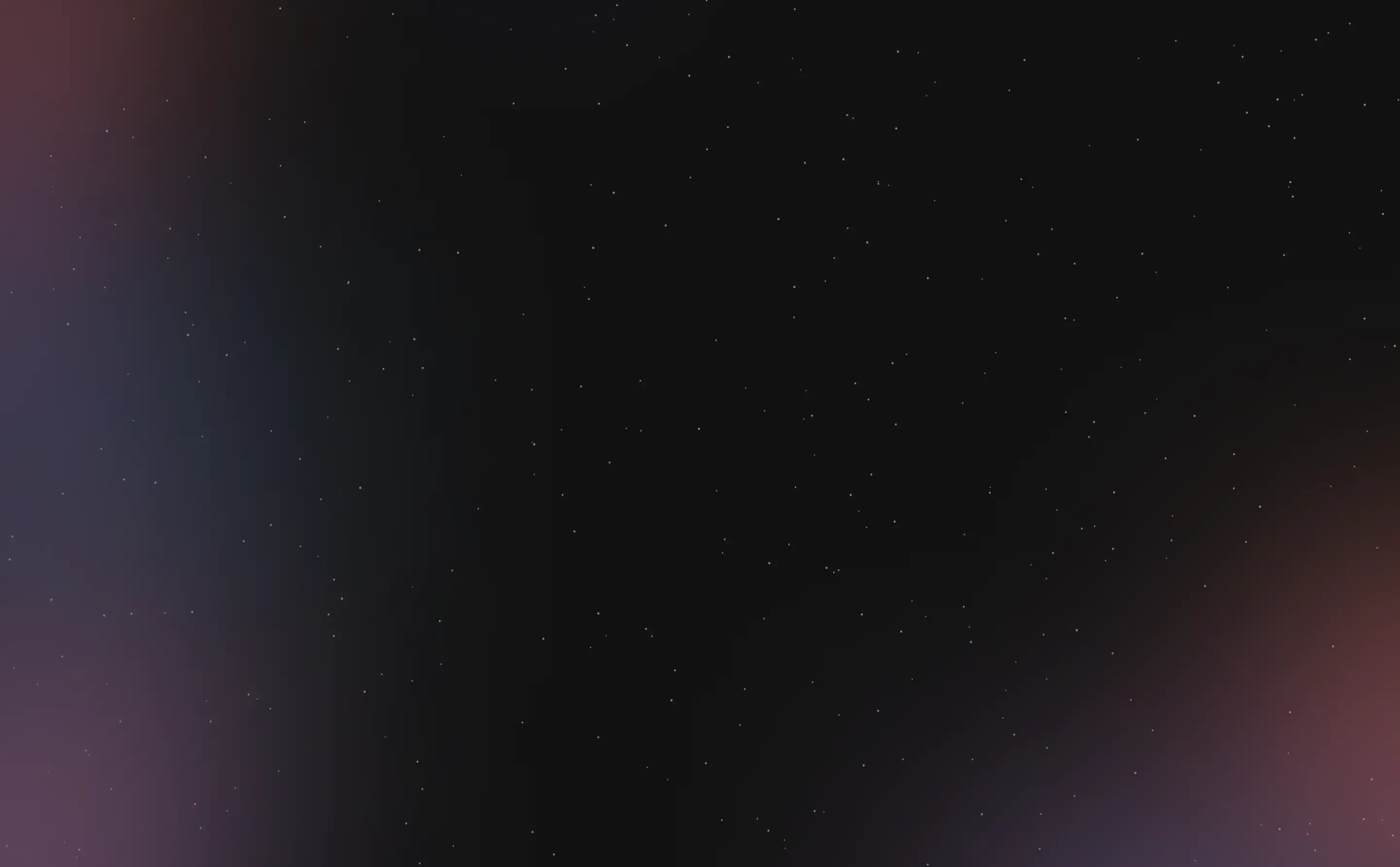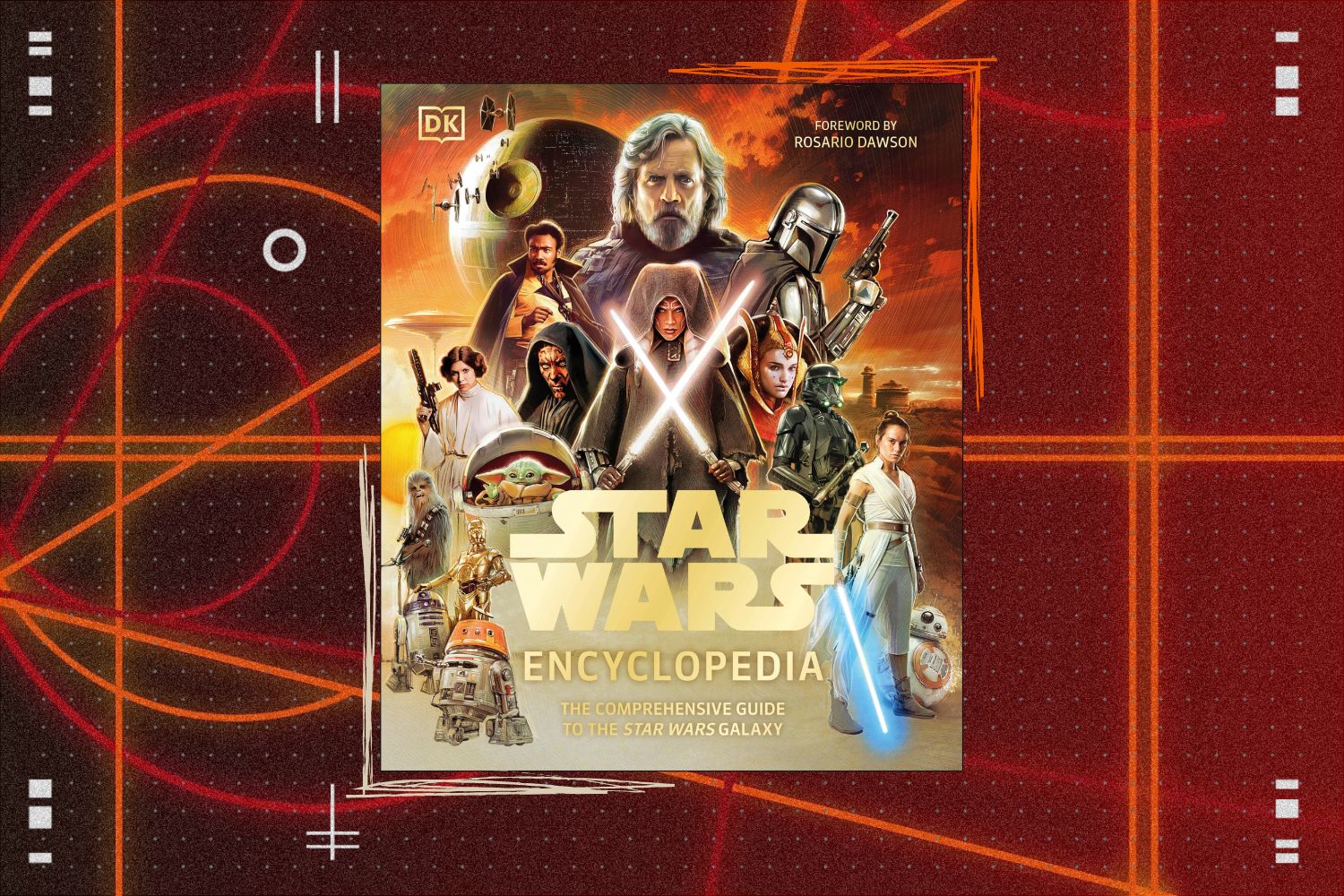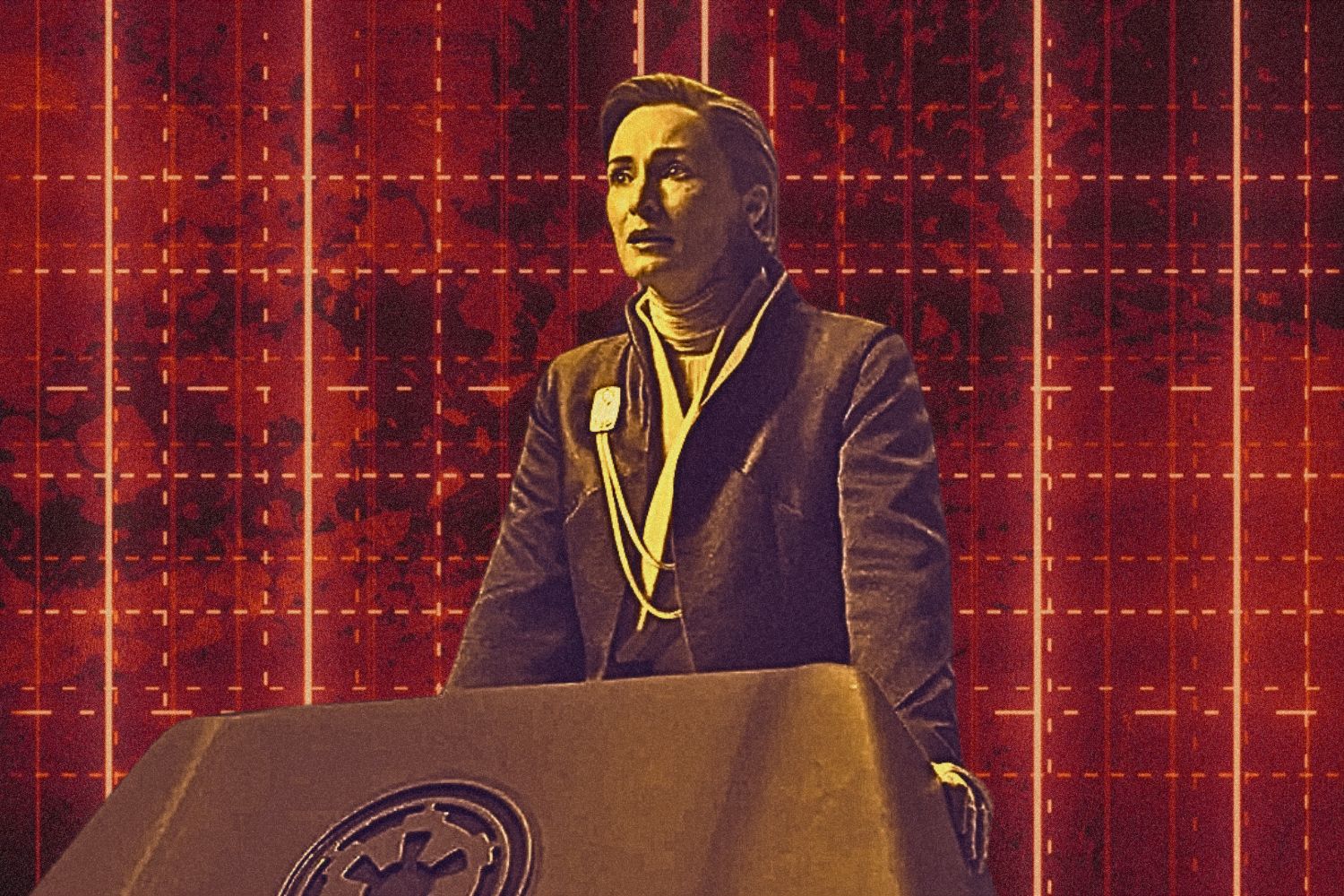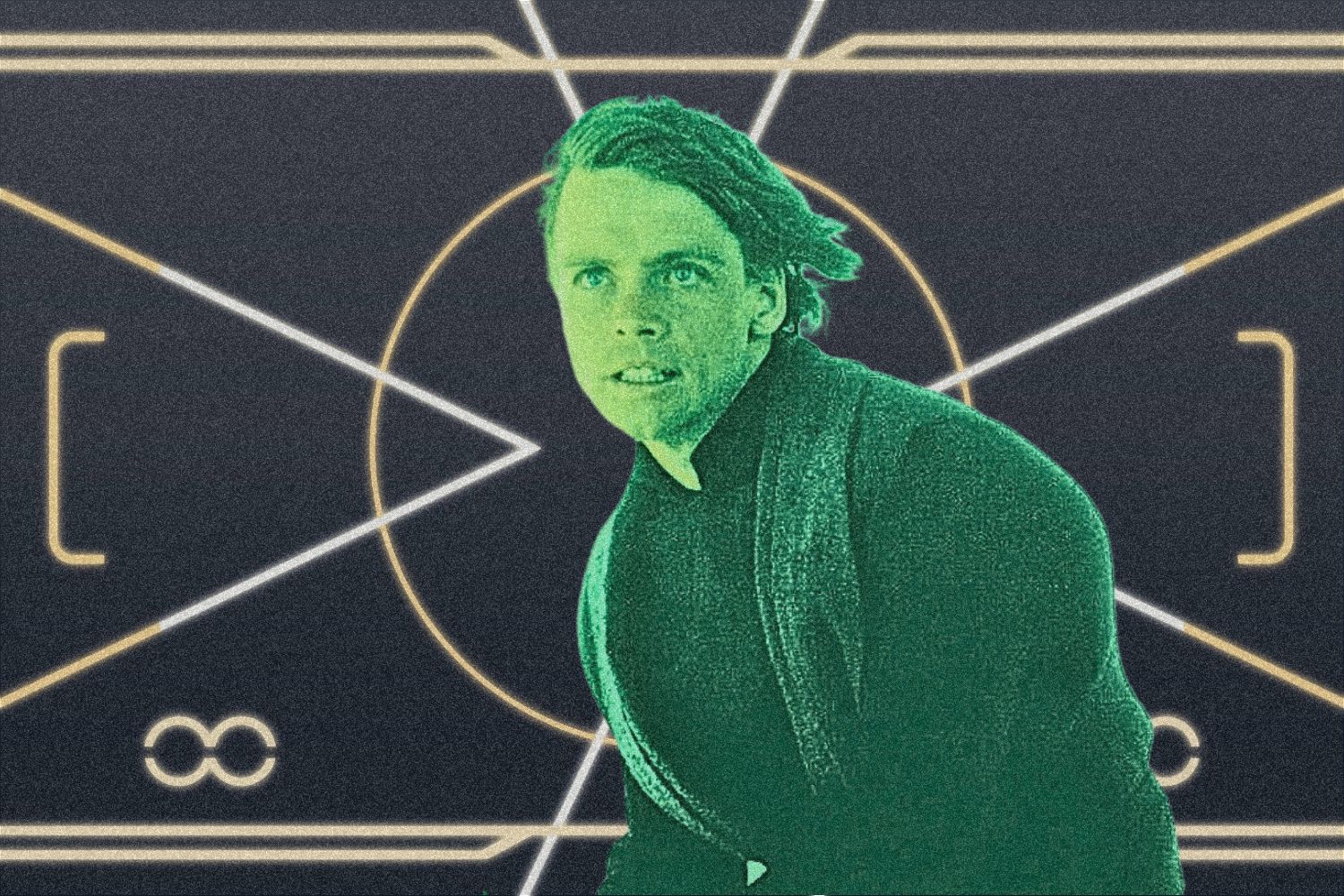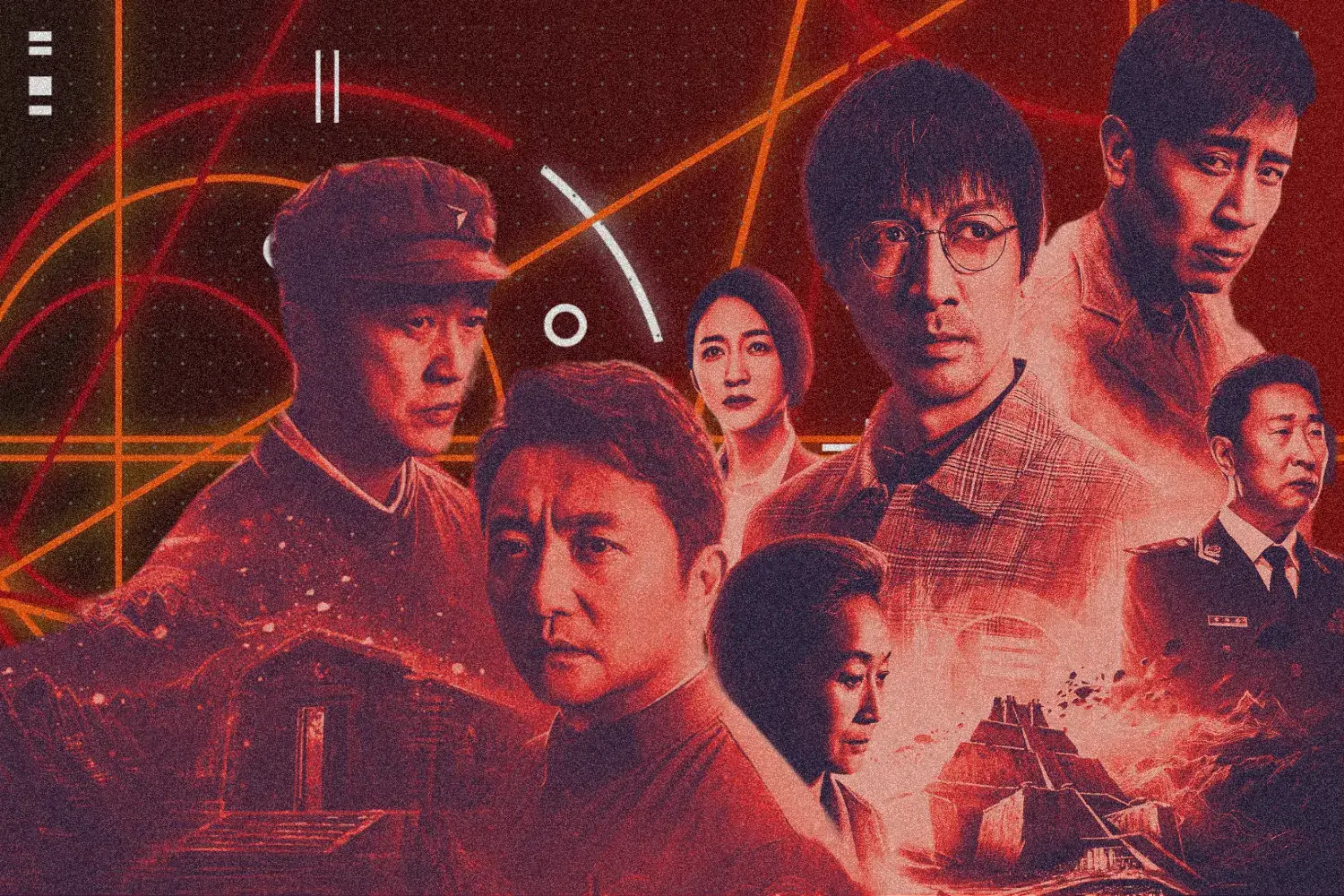
Cixin Liu’s The Three Body Problem series transcends space and time. It’s a story about first alien contact that spans cultures, space, millennia, and even names. Is it Cixin Liu or Liu Cixin? Do we call it the Remembrance of Earth’s Past series, The Three-Body Problem series, Three-Body, or even 3BP? Is it a trilogy or a four-book series?
Yes to all of the above!
Of course, it may depend on what part of the world you’re in, what show you’re watching, or what blog you’re reading. The Three-Body Problem is big, with enormous ideas, vast timelines, and powerful themes. It is a story where scientists might save the world. Or, then again, they might not. There’s a mind-blowing virtual reality game, cultural revolution, secret societies, covert military ops, and everything from cosmology to conspiracy theories, astrophysics to philosophy. This is a series about BIG ideas. It centers around scientists trying to answer questions that might make or break our world in an impending alien invasion.
Background of The Three-Body Problem
All the Names
Let’s start by clarifying a few questions. This series of novels goes by a number of different names. Cixin Liu (Liu Cixin in Chinese, where the surname comes first) wrote the first three novels, sometimes called The Three-Body Problem trilogy or the Remembrance of Earth’s Past series.
But then, author Baoshu extended the trilogy with a fourth book. When you include that one, the whole thing may simply be referred to as The Three-Body Problem saga. It’s also popularly known as Three Body, which is what one Chinese TV series calls it. Here, we sometimes call it 3BP for short.
You, dear reader, may call it whatever you like!
Hard Sci-Fi
The Three-Body Problem is hard science fiction, a subgenre of science fiction. With “hard SF,” the author strives for scientific and technical accuracy, and the science in Cixin Liu’s Three Body trilogy is based on real scientific theories such as quantum entanglement, nuclear thermal propulsion, and multidimensional unfolding. Unlike Star Wars, for example, where feats like hyperspace jumps are never fully explained, Cixin Liu’s story uses actual scientific theory to propel major plot points.
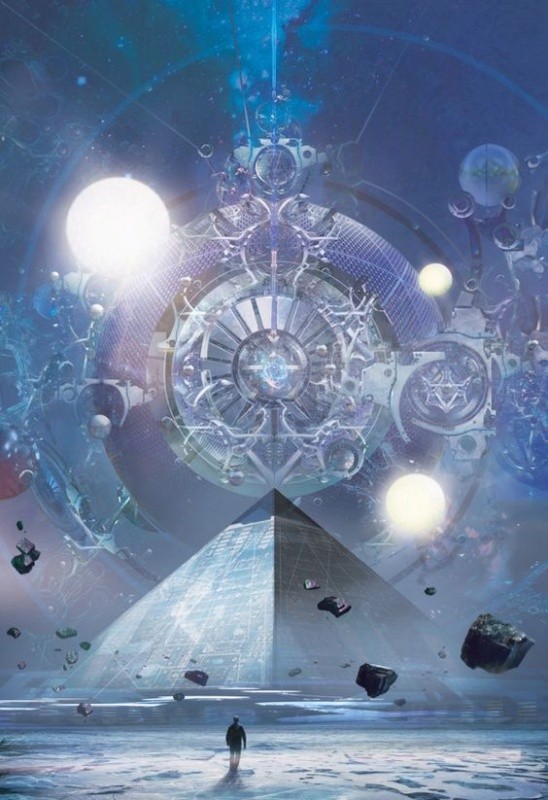
Who would have thought that an extensive saga written by a computer engineer focusing so intently on “hard science” would become a global phenomenon, exciting readers from East to West? Even though Cixin Liu's story is rooted deeply in Chinese cultural history, the West has found his stories equally compelling.
When Did it Hit the Scene?
Book 1 of The Three-Body Problem was first serialized in China in 2006 and published as a novel in 2008. In 2014, Tor Books published the US English translation. Since then, the books have birthed two animated series, two live-action series, multiple graphic novels, and a passionate fanbase, including a tech billionaire (Mark Zuckerberg), president (Barack Obama), and master of epic fantasy (George R.R. Martin).
The Three-Body Problem won China’s Galaxy Award, the Hugo Award, and a Nebula Award nomination. 3BP is as tenacious as the humans and aliens it writes about. Its ideas run deep, and it keeps on surviving.
Cixin Liu: Engineer and Worldbuilder
Cixin Liu was born in Beijing, China in 1963. He came of age during China’s Cultural Revolution, during which he learned to keep some of his science fiction reading secret. He grew up to become a computer engineer, yet he was drawn to creatively express his ideas through writing.
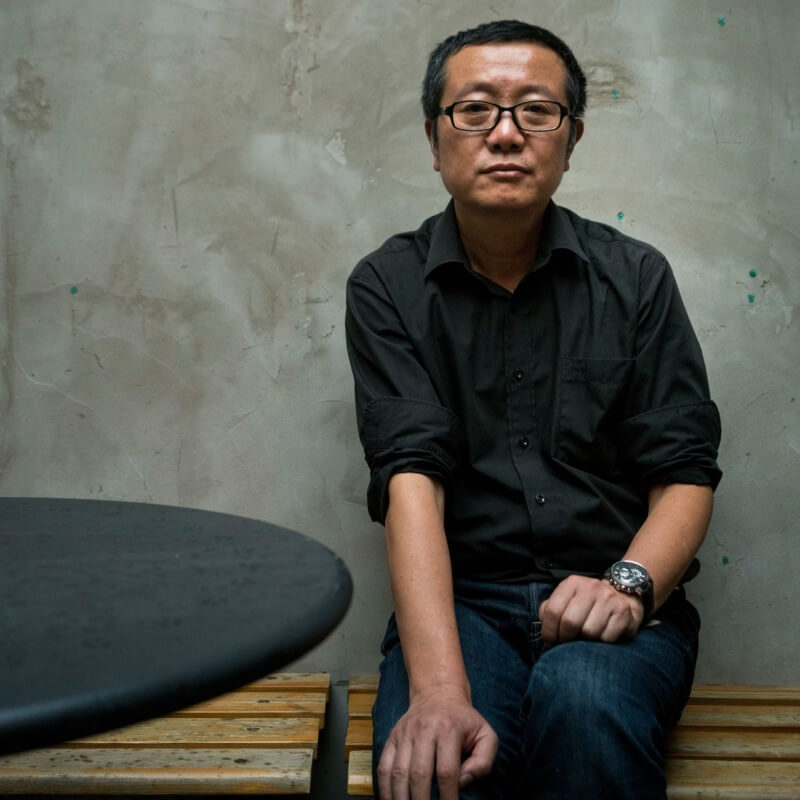
Since then, Liu has become one of the biggest names in the genre. His best-selling work is a hit in China and the U.S. and has been adapted into film and TV on both sides of the globe. The Chinese film production of The Wandering Earth was China’s fifth highest-grossing film of all time. This short story was also made into an epic Netflix film adaptation.
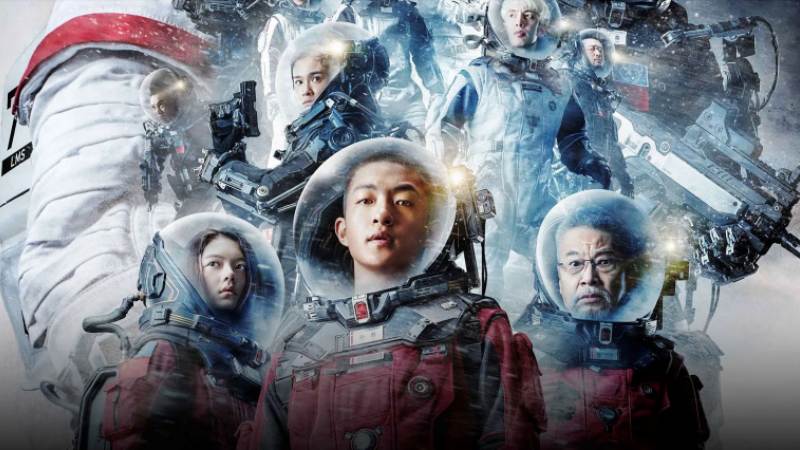
His writing is not without controversy. Many consider The Three-Body Problem a work of self-censorship as it was created in a country ruled by an authoritarian government that does not allow broad freedom of expression. And yet, its ideas transcend borders, which is reflected in the popularity of Cixin Liu’s novels.
Translators — A Bridge Between Worlds
Science fiction is sci-fi everywhere, right? You’ve got space, aliens, and starships. How different can it get? Well, you might be surprised! Every writer and genre is influenced by its culture, geography, and history. The East values particular qualities, pathways, and experiences that the West may not always think about in the same way. Hence, different worldviews and tropes arise. This is what’s so fun about reading today. Never before have we had such a rich treasure trove of translated authors from across the globe expanding our boundaries. Bless the stars; it keeps getting better. Today, translated fiction is more popular than ever, especially among younger readers.
Translation is an art, and translators walk a challenging path. Not only do they need to capture the literal meaning of an author’s words, but they also have to convey it in fluid, evocative, and entertaining language that a different linguistic culture can understand. Ken Liu and Joel Martinsen both hit the mark with their popular translations of the epic 3BP series.
Ken Liu
Ken Liu has translated three novels in the Remembrance of Earth’s Past saga: Books One, Three, and Book Four, authored by Baoshu. He introduced Western readers to the nuances of China and the Cultural Revolution, which Cixin Liu refers to throughout his book by including footnotes to explain things Western readers might not understand.
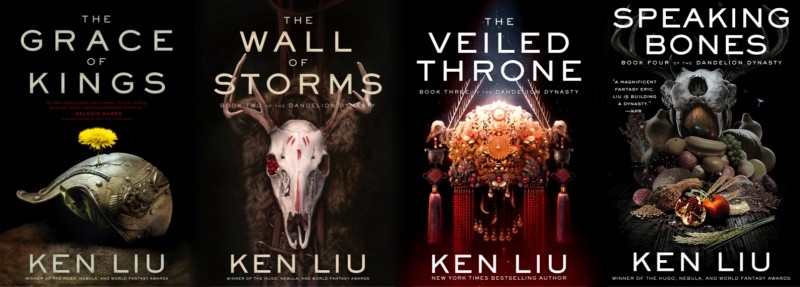
Ken Liu is an award-winning science fiction author in his own right. Winner of the Hugo, Nebula, and World Fantasy awards, his science fiction has been translated into multiple languages around the world. He’s written the epic fantasy Dandelion Dynasty series, dozens of short stories, and even Star Wars: The Legends of Luke Skywalker. His short stories have been adapted for Love, Death + Robots on Netflix and Pantheon on AMC+. As if that’s not enough, he has edited and translated Chinese sci-fi anthologies and even the ancient philosophical text of the Dao De Jing!
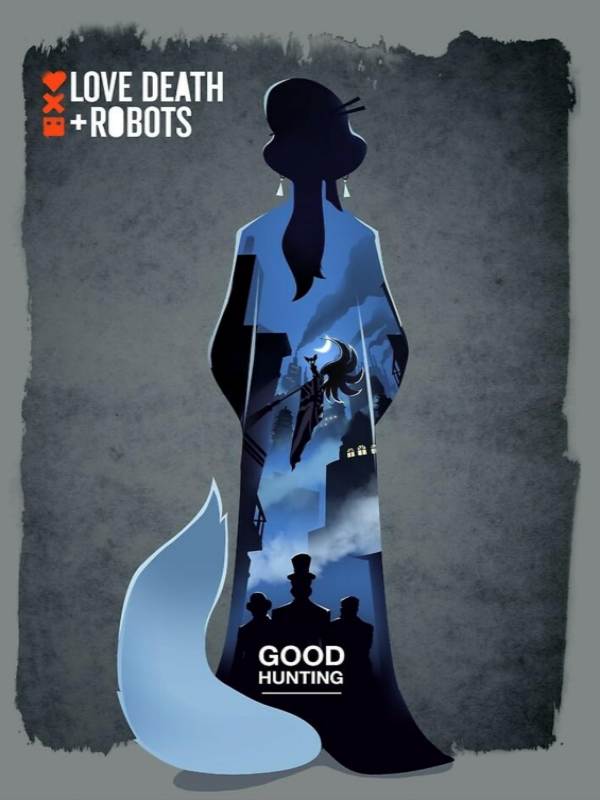
Born in Lanzhou, China, to a mother with a PhD in Chemistry and a computer engineer father, he immigrated to the United States at age 11 and became an American citizen. He earned his undergraduate and graduate degrees at Harvard, where he studied English literature, engineering, and law.
Ken Liu is fluent in Chinese, English, and the language of science fiction. What a star-favored match for Cixin Liu!
Joel Martinsen
Joel Martinsen is the mysteriously private flip side of Ken Liu. Born in America, he moved from the US to China rather than the other way around. Martinsen began studying Chinese in high school, continued in college, then moved to China and studied modern literature in a graduate program at Beijing Normal University. For ten years, he wrote for Danwei Media, and he’s spent decades immersed in Chinese culture, literature, and film.
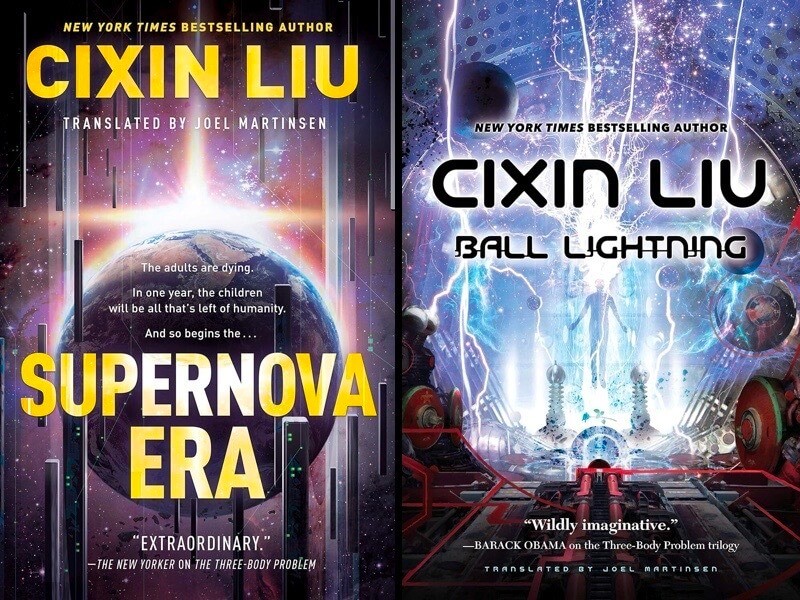
With Book Two, The Dark Forest, coming on the heels of Ken Liu’s translation, Martinsen had some big boots to fill. But not to worry. His translation was a success. Many fans love The Dark Forest most of all. Martinsen has translated three Cixin Liu novels, including Ball Lightning and Supernova Era, various short stories, and works by other Chinese authors. His translations of short fiction have appeared in Pathlight, Chutzpah, and Words Without Borders. He lives in Beijing, China.
The Three-Body Problem Novels
Book 1: The Three-Body Problem, by Cixin Liu, translated by Ken Liu
During the Cultural Revolution in China, the young astrophysicist Ye Wenjie watches in horror as her father, a theoretical physicist, is tortured to death at the hands of the Red Guards. Years later, while surviving a Mongolian labor camp, she’s recruited by the military to Radar Peak atop a mysterious mountain in the wilderness, home to Red Coast military base. A secret project is underway to communicate with alien civilizations, and Ye is positioned to listen for any potential signs of contact.
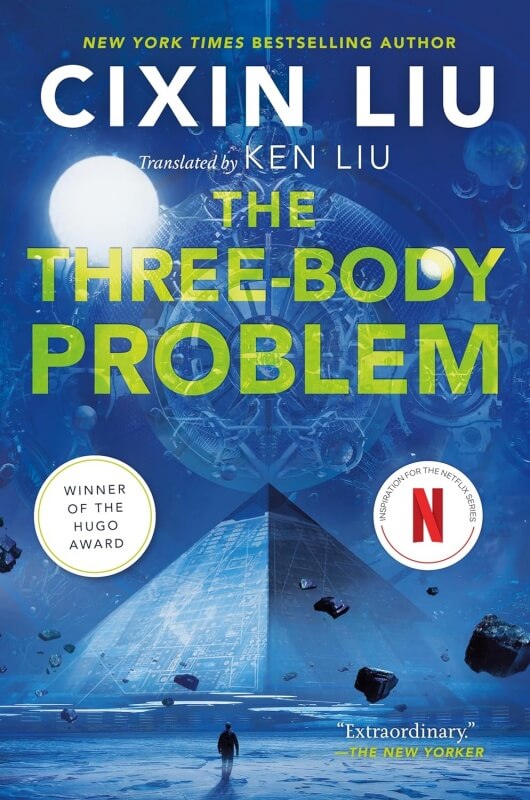
Four decades later, Wang Miao, an expert in nanotechnology, is summoned to China’s Battle Command Center, where he learns that all the world’s governments are working together to fend off a terrifying threat. Meanwhile, scientists are dying by suicide, and Wang Miao gets drawn into a strange virtual reality game depicting the three-body problem of an alien solar system.
As Wang unravels these mysteries, he finds himself caught between competing factions that either seek to support an alien invasion or safeguard the existence of the human race. The novel builds towards an explosive climax where the fate of humanity hangs in the balance against the existential threat of total extinction.
Book 2: The Dark Forest, by Cixin Liu, translated by Joel Martinsen
In the aftermath of making contact with the alien Trisolarans and learning of their plans to invade Earth, humanity scrambles to prepare for the arrival of the Trisolaran fleet in 400 years. However, the Trisolarans have seeded Earth's orbit with "sophons" — probes that prevent scientific advancement by disrupting physical laws while also allowing the aliens to observe humanity.
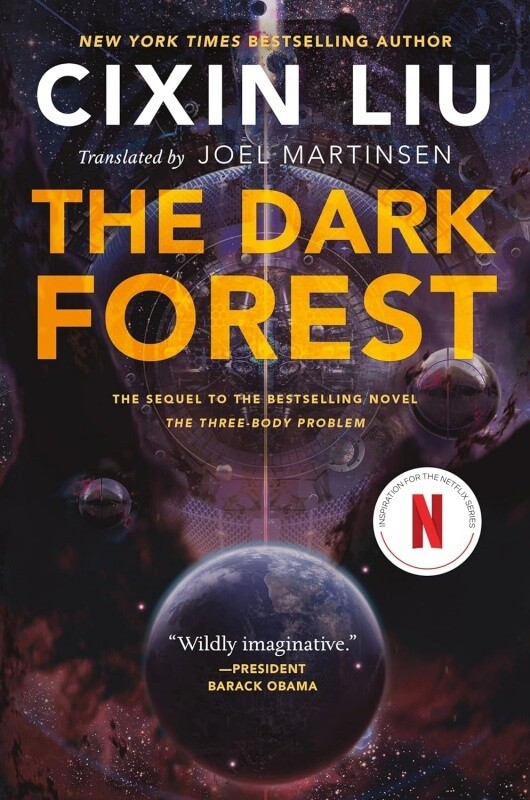
To counter this, the United Nations initiates the top-secret Wallfacer program, recruiting four individuals from diverse backgrounds to devise strategies for survival that not even the sophons can detect. These Wallfacers must keep their plans utterly hidden, even from their own families, as they work in isolation over decades and centuries.
Meanwhile, the world descends into turmoil as nations turn against each other, torn between defiance and despair in the face of the coming invasion. A shadowy group of Trisolaran sympathizers, the Earth-Trisolaris Organization (ETO), emerges to aid the aliens and sabotage the Wallfacer program by creating the Wallbreakers. As the Wallfacers pursue their inscrutable gambits, the novel explores the psychological toll of knowing the world may end and the extreme measures humanity might take to survive.
Book 3: Death’s End, by Cixin Liu, translated by Ken Liu
Death’s End is an intricately plotted novel with multiple storylines spanning space and millennia.
Centuries after making contact with the alien Trisolarans and learning of their plans to invade and colonize Earth, humanity finds itself in an uneasy stalemate. The Trisolarans have placed sophisticated probes called "sophons" throughout the solar system, preventing scientific and technological advancement that could threaten their invasion force, still centuries away.
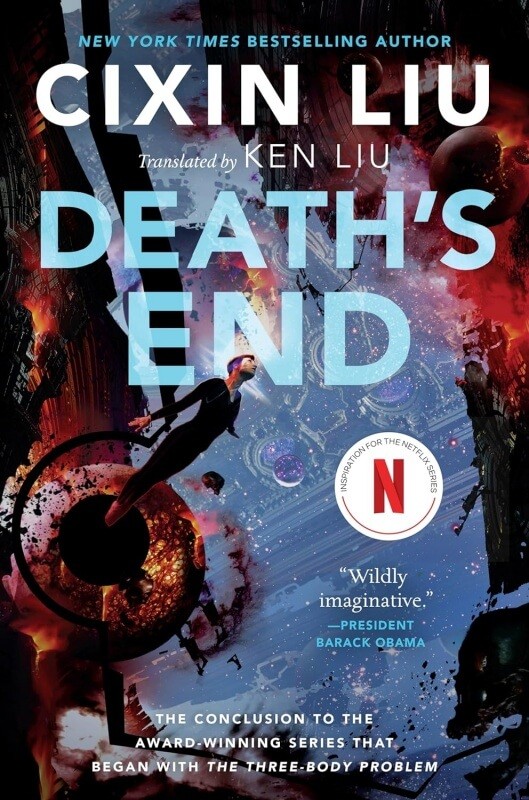
Due to this tenuous situation, Cheng Xin, a 21st-century aerospace engineer, will be awakened from hibernation into a future she can barely recognize. Possessing knowledge of technologies long since abandoned, Cheng joins a desperate last-ditch effort to gather intelligence on the Trisolarans before their arrival.
As Cheng grapples with the enormity of her task, the novel expands in scope to encompass multiple storylines across vast stretches of space and time. The Trisolarans are coming, and their arrival will be brutal. Revelations about the true nature of the cosmos and reality itself come to light, with Cheng and the fate of humanity caught at the center.
Death's End takes Cixin Liu's ambitious series into increasingly metaphysical realms, exploring profound scientific and philosophical questions about the origins and potential future of the universe. With the Trisolarans' conquest looming, humanity confronts not just the possibility of extinction but also the deeper existential mysteries that may hold the key to survival.
Book 4: The Redemption of Time by Baoshu, translated by Ken Liu
Baoshu (aka Bao Shu) is the pen name of Li Jun, a Chinese science fiction and fantasy writer who has won numerous Nebula and Galaxy Awards. His writing has deep philosophical themes, which isn’t surprising considering he has two Master's degrees in philosophy. Some of his stories have been translated into English and can be found in The Magazine of Fantasy & Science Fiction (F&SF) and Clarkesworld.
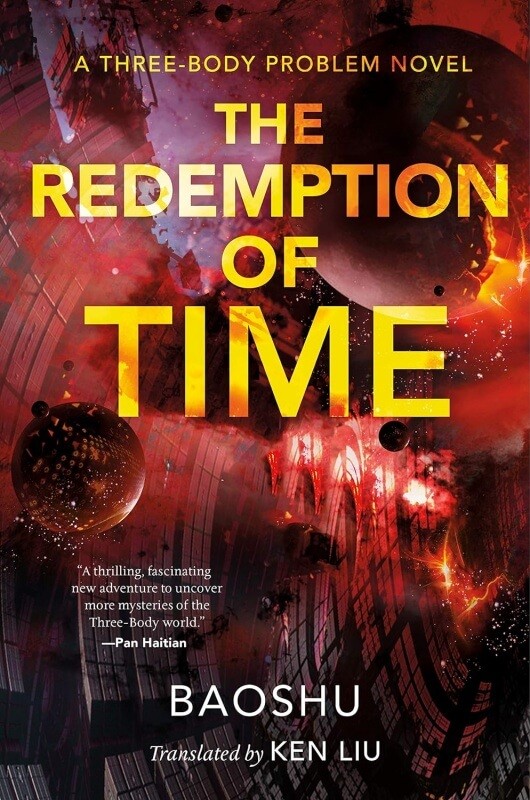
The Redemption of Time is an officially sanctioned sequel to Cixin Liu's "Remembrance of Earth's Past" trilogy. It originated as fan fiction Baoshu wrote and posted online and takes place after the events of Death’s End. Yun Tianming, who had betrayed humanity to aid the Trisolarans, finds himself resurrected in a cloned body. A powerful cosmic entity, the Spirit, recruits Yun for a new mission — to hunt down and destroy the Lurker, a malevolent force that threatens to unravel the entire universe.
Yun is thrust into an incomprehensibly vast conflict spanning multiple dimensions and realities. He learns of the primordial struggle between the Master, an entity seeking to return the universe to a perfect timeless state, and the Lurker, who wants to reduce all existence to a single dimension of pure time.
Blending mind-bending cosmic vistas with personal journeys across space and time, The Redemption of Time takes the philosophical and scientific speculations of the original trilogy to even more audacious heights. Yun finds himself a pawn in forces beyond comprehension as he strives to attain some form of redemption amidst the birth and death of universes.
The Three-Body Problem on Television
The Three-Body Problem novels are so popular that they spawned not just one series but four!
Three Body — The 30 Episode Chinese TV Series
On January 15, 2023, Three Body debuted in China as a 30-episode live-action adaptation in Mandarin that took four years to make. It streams on WeTV and Rakuten Viki. Then, in February 2024, the complete 30-episode series with English subtitles aired on NBC’s streaming network Peacock. It is also available in the US on Amazon Prime and YouTube.
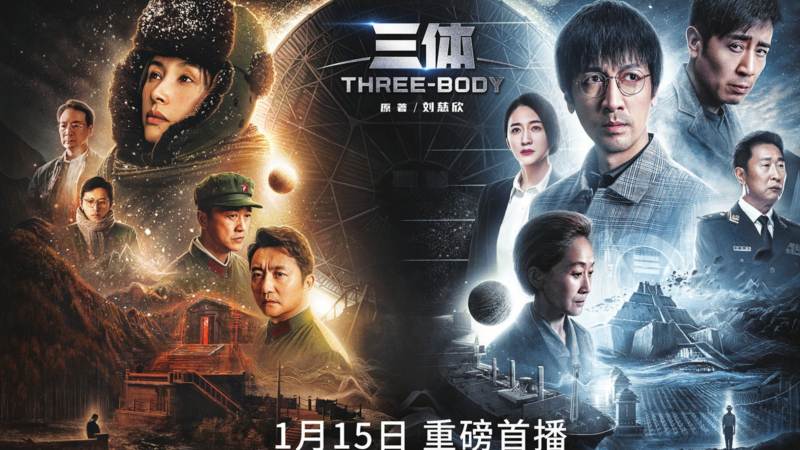
This Three Body is considered the most faithful adaptation of the novel. It was critically acclaimed in China for its storytelling integrity, realistic character casting, and astonishing visuals. If you want to watch an adaptation that explores physics, nanotechnology, and the existential crises of first alien contact, this is the one for you.
3 Body Problem Series on Netflix
In March 2024, the 3 Body Problem series aired on Netflix, brought to us by showrunners David Benioff and D.B. Weiss of Game of Thrones fame. Yep, those guys. These two writers/producers have successful yet controversial experiences adapting novels to television, as any Game of Thrones devotee knows all too well. Alexander Woo also joins them as a writer and showrunner. He’s best known for producing the hit shows True Blood and The Terror.
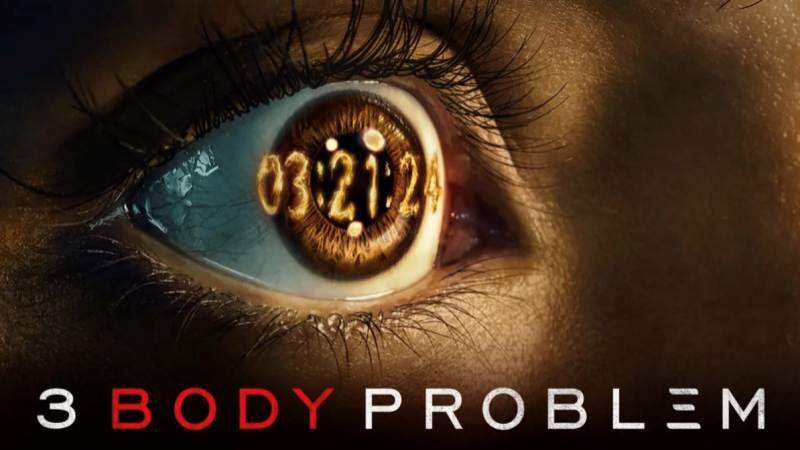
The Netflix version is a much looser or “creative” adaptation, with new characters in England called the Oxford Five. Now, it’s up to Western scientists to save the world. Although the series merges the novels, alters the setting, and changes some of the characters (thankfully not Ye Wenjie!), the showrunners have worked to keep the underlying current of the novels intact. This story is still about science, alien invasion, and the human struggle to survive against a species that is lightyears more advanced.
While not exactly a faithful adaptation of Cixin Liu’s novels, this 3 Body Problem has an emotional drive that some find lacking in the original books and the Chinese TV series with their strong focus on science. The Oxford Five has a shared history swirling with entanglements and fraught friendships. This firmly grounds the story while raising the personal stakes and reveals how a potential alien invasion impacts individuals we grow ever more invested in as the series approaches its inevitable conclusion in Season One.
Other Media
The Three-Body Problem Animated Series aired on Bilibili in China from December 2022 to March 2023. It’s a single-season, 15-episode anime series based mostly on Cixin Liu’s The Dark Forest.
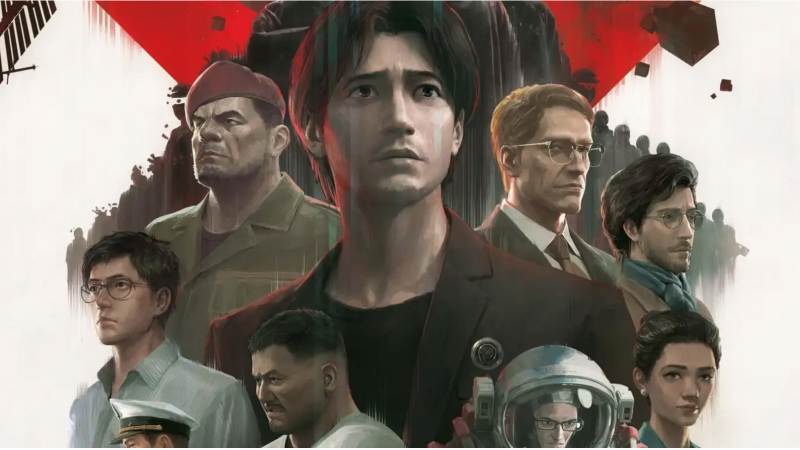
The Three-Body Problem in Minecraft is a Chinese machinima animated series based on The Three-Body Problem and The Dark Forest. It was released in 2014 and runs for three seasons with episodes around twenty minutes.
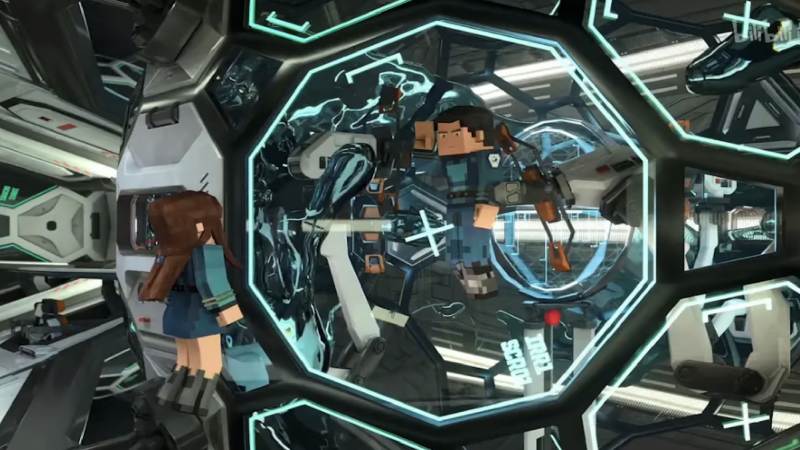
Conclusion
Cixin Liu has impacted the face of science fiction. Through the power of his storytelling, he’s connected the East and West and demonstrated that a serious book about science can become a lasting best seller and inspire readers and viewers worldwide.
Maybe we’re all a little smarter than we thought!
Liu doesn’t underestimate his audience. He doesn’t coddle or talk down to us. Instead, he dives deep and explores timeless and powerful questions: What does it take to survive against overwhelming odds? What does it mean to be human? What are the potential reaches of science? Can it save us? What are the limits of consciousness? And maybe, most importantly, as we inch toward extinction, what really matters in our world?
In a way, The Three-Body Problem saga brings us all closer together. Liu’s world is big. His story encompasses mind-boggling spans of space and time, but he shows us that no matter where we were born or what side of the globe we live on, we’re still one human species with more in common than we think. We love. We grieve. We fight to survive.
The series spans eons and needn’t be read in a day or a week. It’s a deep, mind-blowing journey, and it’s okay to take your time with it. But if you have a penchant for aliens, science, philosophy, and themes of survival, be adventurous and experience firsthand an enduring saga that may expand your understanding of the world in thrilling new ways.
Gea Haff is a Content Creator at Youtini. She first fell in love with Star Wars at age 9 when A New Hope hit theaters. After writing George Lucas a letter at 12, Lucasfilm responded with a subscription to Bantha Tracks. She's been a devoted fan ever since, cherishing the galaxy far, far away.

